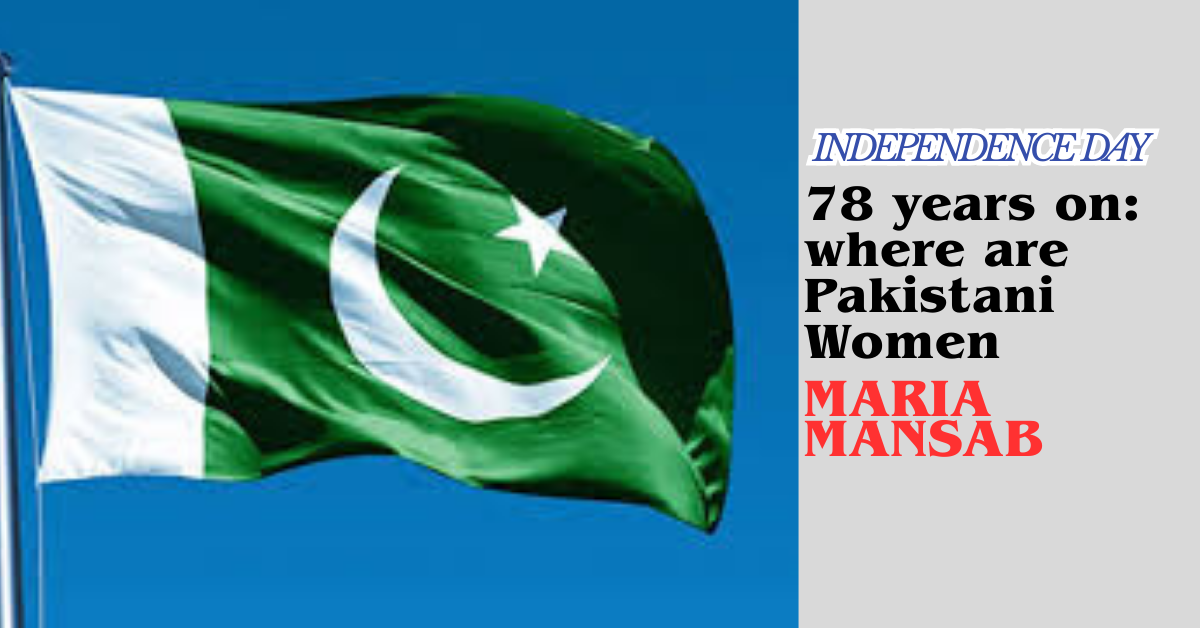Pakistan celebrates its 78th Independence Day on 14th August with flags, processions, and orations on sovereignty and statehood. But as I sat alone reflecting, one question refused to leave my mind: Do Pakistani women truly have independence? Independence not just from colonialism, but independence to live freely, to own their bodies, to feel secure, to have their rights respected? The answer is chilling; women, despite decades of struggle, remain shackled by violence, discrimination, and fear.
Seventy-eight years ago, women bore the searing pain of violence and separation during the Partition in 1947. That moment in history saw some of the most brutal atrocities ever committed against women; between 75,000 and 100,000 women were kidnapped and raped. Some were pushed into conversions, paraded in public, mutilated, or coerced into weddings. Some had their breasts cut off; others endured genital mutilation that often led to death. The violence was unimaginable, yet today Pakistani women continue to face eerily similar threats.
On paper, Pakistan promises equality. The Constitution guarantees women’s rights; there are laws to safeguard them. Yet in practice, deeply rooted social norms, weak enforcement, and pervasive gender violence create a very different reality. The 2025 Human Development Report (HDR) places Pakistan in the “low” human development category with an HDI of 0.544, ranked 168 out of 193 countries. When it comes to gender equality, the picture is even bleaker. Pakistan ranks 148th out of 148 nations in the World Economic Forum’s Global Gender Gap Report 2025, achieving only 56.7 percent parity, the lowest since 2006.
Workplace safety, despite the Protection against Harassment of Women at the Workplace Act (2010), remains a serious concern. The Aurat Foundation, a Pakistani women’s rights organization, found that 90% of working women in Pakistan have experienced workplace harassment. Another Gallup Pakistan survey indicated that 70% of urban women and 93% of rural women have experienced workplace sexual harassment. Thousands of complaints have been lodged with the federal ombudsman, but countless others go unreported due to stigma and fear.
In Pakistan, gender based violence is endemic and grossly underreported. The Human Rights Commission of Pakistan alone documented at least 405 honor killings in 2024; activists stress this is likely an undercount.
Consider the case of Sidra Bibi, an 18-year-old woman from Rawalpindi, murdered in 2025 on the orders of the local elders’ council for marrying a man of her choice. Nine arrests were made, but the case highlights the fatal risks women face when exercising agency over marriage. Another harrowing story emerged when a father hacked his daughter’s legs with an axe because she sought a divorce.
Dr. Syed Tariq, head of the Sindh police medico-legal department, has witnessed hundreds of cases of women abused, raped, burned, and murdered over the last 26 years. According to her, “We are nurturing abusers who are worse than animals.” On an average day, Karachi’s medico-legal centers at three public hospitals receive about six sexual violence cases and 10 to 15 domestic violence cases.
Some tragedies go entirely unseen. In Karachi, actress and model Humaira Asghar Ali died in her locked apartment for nearly nine months. When her body was found, it was unrecognizable. Expired food, a damaged power supply, and phone records tracing back to October 2024 confirmed that a public figure had vanished in plain sight, unnoticed by neighbors, colleagues, or friends. Her quiet erasure speaks volumes about how invisible women can become, even in death.
These are only the reported cases. According to a UN report on femicide in 2023, some 51,100 women and girls were murdered in their own homes by those who were close to them. In Pakistan, the persistence of “honour” killings is a deep shame. The Criminal Law (Amendment) (Offence in the Pretext of Honour) Act of 2016 aimed to close loopholes, yet its impact is blunted by social acceptance of violence. The Qisas and Diyat law still allows families to forgive killers, enabling impunity. In Punjab, within one month, the Anti-Women Harassment and Violence Cell received over 50 complaints, 26 relating to domestic violence, five to harassment, 16 to financial disputes, and over 20 to other issues.
Seventy-eight years after independence, Pakistani women live in multiple realities, some empowered, others invisible. The promise of freedom will remain unfulfilled until every woman can live without fear, speak without suppression, and exist without threat. Independence is not just a date on the calendar; it is the ability to live as a human being, in dignity and safety. And for millions of women in Pakistan, that day has yet to arrive.

